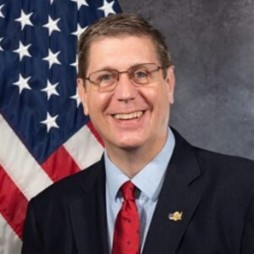The college years are a time when students may experiment with drugs for the first time. This is why college is the ideal setting to implement substance misuse prevention strategies. This webinar will include an overview of current drug use rates among college students; a strategic planning guide for preventing drug misuse among college students; successes and challenges experienced by colleges and universities applying the Strategic Prevention Framework; a real-world profile of a university’s experience implementing substance misuse prevention strategies; and tools for professionals working to prevent drug misuse among college students.
LEARNING OBJECTIVES:
- Describe the current drug use rates among college students
- Describe successes and challenges in applying the Strategic Prevention Framework to preventing drug use and misuse among college students
- Leverage tools for professionals working to prevent drug misuse among college students
CERTIFICATES:
Registrants who fully attend this event or training will receive a certificate of attendance via email within two weeks after the event or training.
PRESENTERS:

Richard Lucey
Rich Lucey has more than three decades of experience at the state and federal government levels working to prevent alcohol and drug use and misuse among youth and young adults, especially college students. He currently serves as a senior prevention program manager in the Drug Enforcement Administration’s Community Outreach and Prevention Support Section. Rich plans and executes educational and public information programs, evaluates program goals and outcomes, and serves as an advisor to the Section Chief and other DEA officials on drug misuse prevention and education programs. Rich formerly served as special assistant to the director for the federal Center for Substance Abuse Prevention, and worked as an education program specialist in the U.S. Department of Education's Office of Safe and Drug-Free Schools.

Erin Ficker
Erin Ficker, MPAff, CPRS, serves as a prevention manager for the Great Lakes Prevention Technology Transfer Center (PTTC) For over 18 years, she has built the capacity of clients to perform prevention work effectively using the Strategic Prevention Framework (SPF). She has in-depth knowledge and training experience in the SPF process, including specific work in evaluation, sustainability, assessment, and working with diverse populations. She provides services to a wide range of prevention and behavioral health specialists.is an expert in substance misuse prevention, an accomplished training and technical assistance (T/TA) provider, and a certified senior prevention specialist. She brings extensive expertise in supporting, designing, and delivering engaging professional learning, and providing comprehensive T/TA for states and community-level prevention professionals.

Jenny Damask
Jenny Damask has worked in college student health and AOD prevention for 18 years, currently at the University of Wisconsin. In her role she helps campus partners strategize and evaluate changes to systems, policies, and environments. She has a brilliant grasp of the public health approach to preventing issues with alcohol, drugs, tobacco, and hazing. She developed several successful educational programs and promotional campaigns involving social norms clarification and bystander intervention. Jenny holds a BS from the University of Wisconsin Oshkosh in Human Services, a MS in College Student Personnel Administration from the University of Central Missouri, and an Ed.D. from the University of Missouri-Columbia in Educational Leadership and Policy Analysis.
The Great Lakes A/MH/PTTC is offering this training for individuals working in HHS Region 5: IL, IN, MI, MN, OH, WI. This training is being provided in response to a need identified by Region 5 stakeholders.
